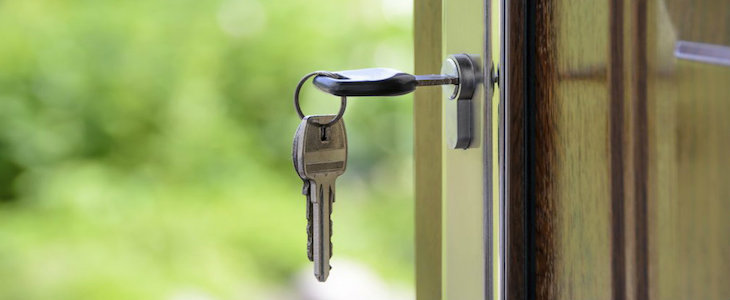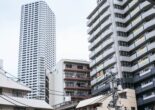
Moving to Japan for studying or working?
Whichever is your purpose when it comes to rent a place you should know a few things about it.
First of all, Japan and Tokyo, specifically, is an over populated city with limited residential zoning therefore do not expect to find the same spacious rooms, houses or apartments you are used in your home country.
Once accepted this, renting a place might be a really stressful experience if you wish to do it on your own without any knowledge about it. In western countries it is likely that, when you rent out a place, you just have to pay the deposit and the rent. In Japan things work “slightly” in a different way.
Let’s suppose you find some attractive solutions that meet your needs: room size, rent, distance to the station and to work place or school, at the real estate agency you have been asking to.
Let’s start with some useful words:
- 賃料 (Chinryou) or 家賃 (Yachin) : rent
- 敷金 (Shikikin) : deposit
- 礼金 (Reikin) – Key Money : “Reward”, gift to the owner
- 管理費 (Kanrihi) : monthly management fee
- 保証料 (Hoshyouryou) : guarantor fee in case you do not have a guarantor like Japanese company you are working for or Japanese relatives or friends ,that would act as your guarantor.
- 鍵交換費用 (Kagikoukanhiyou) : change of lock fee
- 清掃費 (Seisouhi) : cleaning fee
- 家財保険料 (Kazaihokenryou) : furniture insurance
- 仲介手数料 (Chyuukaitesuryou) : real estate agency fee
- 合計 (Goukei) total cost
- 預かり金 (Azukarikin) : advance payment
- 清算金 (Seisankin) : total remaining to pay
Housing in Japan are categorized in アパート (apaato) and マンション (mansion)
- アパート (apaato) building of 2 floors (the first floor, in Japan, is on the ground floor)
- マンション (mansion) buildings over two floors
In Japan, they use a RSLDK measuring system to describe the floor plan of a property. Here are the exact meanings:
- R : Room
- S : Storage Room
- L : Living
- D : Dining
- K : Kitchen
Regarding the size of these rooms, you should know that they are measured in 帖 (じょう – Jou).
1 JO is also called 1 tatami and a surface area of 91 cm x 182 cm or about 1.6 square meters. Here are some examples:
- 4,5 帖 : 7,2 m²
- 5帖 : 8 m²
- 6 帖 : 9,6 m²
- 8 帖 : 12,8 m²
- 12帖 : 19,2 m²
There are two types of rooms style:
- 和 室 (washitsu): room with a tatami floor and often sliding doors in the pure traditional Japanese style .
- 洋 室 (Youshitsu): Western-style room
Last but, not least, the number of rooms is expressed by the number in front of the letters above. Here are some examples:
- 1LDK : 1 room, 1 living, 1 Dining Kitchen
- 2DK : 2 rooms, 1 dining kitchen
- 3 SLDK : 3 rooms, 1 storage, 1 living, 1 dining kitchen
Studio flats, a one piece apartment, are indicated by the name ワンルーム (One room).
Let’s see one concrete example:
アパート (apaato)
3DK : 3 rooms, 1 Dining Kitchen
5 min to the bus stop on foot
Total size: 57,00 m²
Living + Dining Kitchen : 7.13帖 (11,4 m²)
Room 1 (洋室) : 6 帖 (9,6 m²)
Room 2 (洋室) : 6 帖 (9,6 m²)
Room 3 (和室) : 6 帖 (9,6 m²)
Monthly Rent (賃料) : 79,000 Yen
Monthly management fee (管理費) : 3,000 Yen
Building date : 1988
Bathroom & toilet separate, balcony
Example:
敷金 (Deposit) = 0 Yen
礼金 (Gift to the owner) = 0 Yen
賃料 (Rent) = 79,000 Yen
管理費 (Monthly Management fee) = 2,000 Yen
保証料 (Guarantor Agency Fee) = 0 Yen
保険料 (insurance) = 20,000 Yen
仲介手数料 (Real estate fee) = 42,660 Yen
合計 (Total cost) = 143.660 Yen
預かり金 (Advance payment) = 0 Yen
清算金 (Total remaining to pay) = 143.660 Yen
Usually the contract lasts 2 years after which you can renew it, or move out. If you wish to move out before the contract ends, you might loose the deposit. Better being quite sure about the choice then, because if the deposit is 2 months rent you might loose quite a lot of money.
How to make the best choice then? Choose an accommodation according to your priorities.
If you want to be as closest as possible to the station because you commute every day early in the morning, choose one within 5 minutes walking distance to the station. However, those accommodations have the big advantage to be close to the station therefore they might be a little bit more priced.
If you wish to save money but still need to commute every day then choose an accommodation well served by bus and or with bicycle parking available, check also the bicycle parking distance between the parking and the station tough!
If you care more about the size of the room and prefer to save some money than usually the further you go from the station the cheaper it is, unless of course you choose a super luxury accommodation.
One other tip to save money if you’re not superstitious is to consider a jiko bukken property. Jiko Bukken – What’ s that?
A jiko bukken is a property where the former occupant died of unnatural causes, such as suicide, murder, fire.
By law, all real estate agents must tell you that you are viewing a jiko bukken property. Due to the superstitious nature of many Japanese people, jiko bukken properties can usually be rented at a substantial discount. As long as you don’t mind the occasional strange noise in the night, a jiko bukken might be a great way to save some money on the rent. 😉
A reminder to let you know that if you are looking for an accommodation in Japan, our portal JapanRoomFinder.com has plenty of apartments and rooms in share houses available all over Japan. Send us an enquiry if you like one of them.



